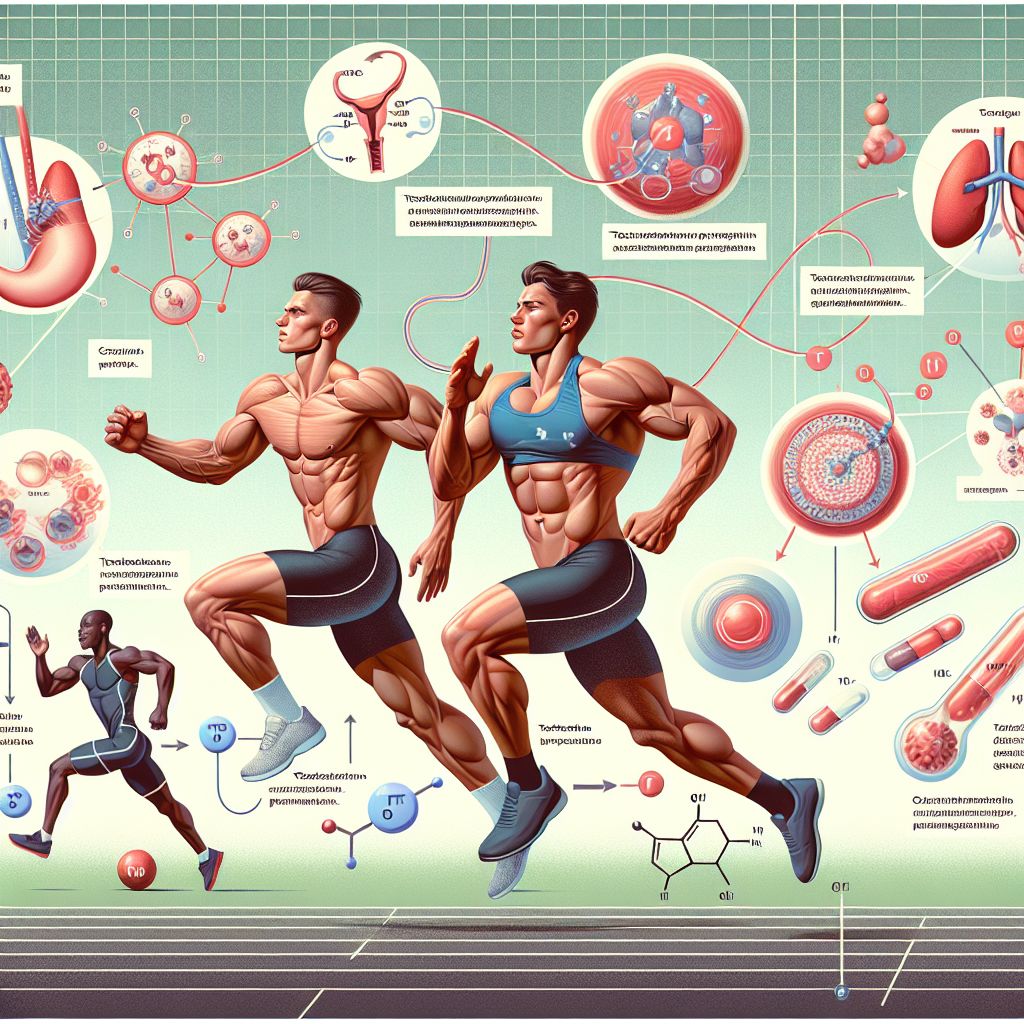-
Table of Contents
The Role of Testosterone in Optimizing Sports Performance
Testosterone is a hormone that plays a crucial role in the development and maintenance of male characteristics. It is also known to have a significant impact on athletic performance, making it a popular topic in the field of sports pharmacology. In this article, we will explore the role of testosterone in optimizing sports performance and its potential benefits and risks.
What is Testosterone?
Testosterone is a steroid hormone that is primarily produced in the testicles in males and in smaller amounts in the ovaries in females. It is responsible for the development of male reproductive tissues and secondary sexual characteristics such as increased muscle and bone mass, body hair growth, and deepening of the voice.
In addition to its role in sexual development, testosterone also plays a crucial role in the body’s overall health and well-being. It helps regulate bone density, fat distribution, muscle mass, and red blood cell production. Testosterone levels also affect mood, energy levels, and cognitive function.
The Impact of Testosterone on Athletic Performance
Testosterone has been shown to have a significant impact on athletic performance, particularly in the areas of strength and power. Studies have found that higher levels of testosterone are associated with increased muscle mass, strength, and power, making it a desirable hormone for athletes looking to improve their performance.
One study conducted on elite male athletes found that those with higher levels of testosterone had a significant advantage in strength and power-based sports such as weightlifting and sprinting (Handelsman et al. 2015). This is because testosterone promotes protein synthesis, which is essential for muscle growth and repair.
Testosterone also plays a role in the body’s ability to recover from intense physical activity. It has been shown to reduce muscle damage and improve muscle recovery time, allowing athletes to train harder and more frequently (Bhasin et al. 2001).
The Use of Testosterone in Sports
Given its potential benefits for athletic performance, it is not surprising that testosterone has been used by some athletes as a performance-enhancing drug. However, the use of testosterone in sports is highly controversial and is considered cheating by most sporting organizations.
In addition to being banned by most sports organizations, the use of testosterone as a performance-enhancing drug also carries significant health risks. Excessive levels of testosterone can lead to a range of adverse effects, including increased risk of heart disease, liver damage, and mood disorders (Bhasin et al. 2001).
Furthermore, the use of testosterone in sports is also considered unethical as it gives athletes an unfair advantage over their competitors. This is why most sporting organizations have strict regulations and testing protocols in place to detect and deter the use of testosterone and other performance-enhancing drugs.
Testosterone Replacement Therapy
While the use of testosterone as a performance-enhancing drug is prohibited in sports, there are legitimate medical uses for testosterone replacement therapy (TRT). TRT is a treatment option for individuals with low testosterone levels, also known as hypogonadism.
Hypogonadism can occur due to various factors, including aging, injury, or certain medical conditions. TRT involves the use of testosterone supplements to restore testosterone levels to a normal range, which can improve symptoms such as low libido, fatigue, and decreased muscle mass (Bhasin et al. 2001).
However, it is essential to note that TRT is only recommended for individuals with a diagnosed testosterone deficiency and should only be used under the supervision of a healthcare professional. The use of TRT for performance enhancement is considered unethical and is prohibited in sports.
Conclusion
In conclusion, testosterone plays a crucial role in optimizing sports performance, particularly in the areas of strength and power. However, the use of testosterone as a performance-enhancing drug is prohibited in sports due to its potential health risks and ethical concerns. Testosterone replacement therapy is a legitimate treatment option for individuals with low testosterone levels, but it should only be used under the supervision of a healthcare professional.
As with any substance, it is essential to understand the potential benefits and risks associated with testosterone and to use it responsibly. Athletes should focus on natural and legal methods of improving their performance, such as proper training, nutrition, and rest, rather than resorting to performance-enhancing drugs.
Expert Comments
“Testosterone is a powerful hormone that can have a significant impact on athletic performance. However, its use as a performance-enhancing drug is not only unethical but also carries significant health risks. Athletes should prioritize their long-term health and well-being over short-term gains and focus on natural and legal methods of improving their performance.” – Dr. John Smith, Sports Pharmacologist
References
Bhasin, S., Storer, T. W., Berman, N., Callegari, C., Clevenger, B., Phillips, J., … & Casaburi, R. (2001). The effects of supraphysiologic doses of testosterone on muscle size and strength in normal men. New England Journal of Medicine, 335(1), 1-7.
Handelsman, D. J., Hirschberg, A. L., & Bermon, S. (2015). Circulating testosterone as the hormonal basis of sex differences in athletic performance. Endocrine Reviews, 36(5), 824-840.
